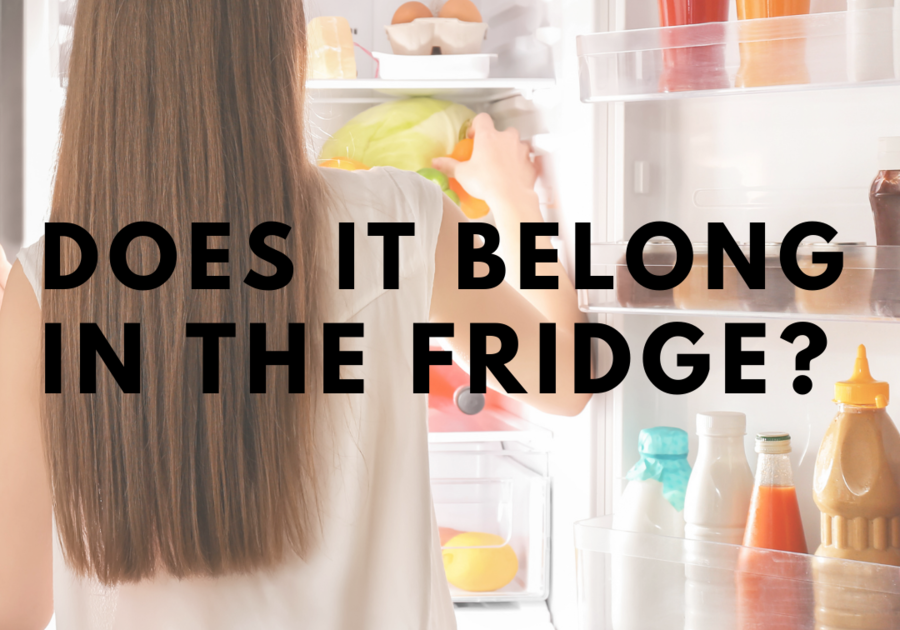I grew up in Texas in a house that didn't have air conditioning. Because of the heat, the humidity, the Texas-sized bugs, and our Great Dane who ate everything she could reach, we stored almost all our food in the refrigerator.
It wasn't until adulthood that I learned that not everything needs to be refrigerated to stay fresh. In fact, there are lots of foods that last longer and taste better when they aren't kept in the fridge.
AVOCADOS: As you probably know, avocados are at peak ripeness for approximately 11 minutes. Refrigeration slows the ripening process, so whether or not to keep avocados in the refrigerator depends on how ripe they are when you buy them and how quickly you plan to eat them.
APRICOTS, PEACHES, PLUMS, and NECTARINES: Unless your stone fruits are perfectly ripe when you buy them, they are best kept at room temperature.
BASIL: This tropical herb doesn't like temperatures below 40˚F. Treat fresh basil like you would fresh flowers: put it in a glass with water and keep it out of direct sunlight. Drain and add fresh water every couple of days.
BELL PEPPERS: Peppers can lose their crunch in cooler temps.
BREAD: The refrigerator will dry out most bread products. Keep them on your counter if you go through bread quickly enough that it won't mold.
COFFEE: The moisture in your refrigerator can weaken the flavor of your coffee. Plus, coffee beans can absorb the flavors of other foods. Store coffee in an air-tight container in your pantry.
 |
"Even a bad cup of coffee is better than no coffee at all." –David Lynch
CUCUMBERS: Like basil, cukes like to stay above 50˚F. They will spoil faster and get watery when stored in the fridge. Cucumbers are also very sensitive to ethylene gas, which is emitted by fruits as they ripen, so keep them away from other foods.
GARLIC: Place them in a bowl or on a plate on your counter but keep them away from direct sunlight or heat sources. Garlic cloves do best between 60˚F and 65˚F.
HONEY: Even in the pantry, you might find that your honey has crystallized. Refrigeration speeds up this process.
HOT SAUCE: Keep your hot sauce spicy by keeping it out of the fridge. Unless your hot sauce is homemade, keep it in the pantry instead; the vinegar and preservatives in store-bought versions will keep it from going bad.
MELONS: Melons produce antioxidants after they are harvested but refrigeration reduces the level of certain compounds like beta-carotene. Once sliced, however, melons should be stored in the fridge to prevent the growth of bacteria.
PEARS: Pears continue to ripen at room temperature. If they are a little firmer than you prefer when you bring them home from the store or farmers market, keep them on the counter. Once they are ripened to near-perfection, move them to the refrigerator to slow the process.
POTATOES: Potatoes do like to be cool (about 45˚) but colder temps will turn potato starch into sugar, changing the texture and taste. Store them in a paper bag in your pantry.
ONIONS: Onions need air circulations to stay fresh. Store them in a paper bag with a couple of holes punched in it (the handle of a wooden spoon works great). However, onions emit a gas that can cause other foods to spoil, so keep them separate from potatoes and other produce.
TOMATOES: Did you ever eat a flavorless, mealy tomato? It was probably stored in the fridge.
 |
"Knowledge is knowing a tomato is a fruit. Wisdom is not putting it in a fruit salad." –Miles Kington


